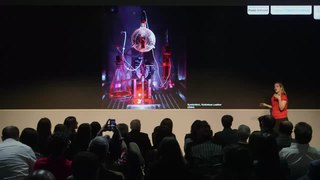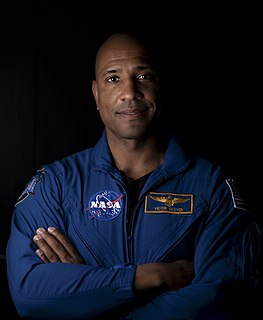A Quote by Fred Hoyle
The seemingly insuperable difficulties of deep-space travel suggest an intention to keep us fixed at home in our own solar system, and the physical nature of our part of the Universe, as well as the basic rules of physics and chemistry, have a warning look about them, like barriers designed to isolate intelligent life. This means that for us, unlike the situation for humble microorganisms, deep-space travel is probably a stark impossibility.
Quote Topics
About
Barriers
Basic
Chemistry
Deep
Designed
Difficulties
Fixed
Home
Humble
Impossibility
Intelligent
Intelligent Life
Intention
Isolate
Keep
Life
Like
Look
Means
Microorganisms
Nature
Our
Own
Part
Physical
Physics
Rules
Seemingly
Situation
Solar
Solar System
Space
Space Travel
Stark
Suggest
System
Them
Travel
Universe
Unlike
Us
Warning
Well
Related Quotes
The freedom of an individual depends upon that individual's freedom to alter his considerations of space, energy, time and life and his roles in it. If he cannot change his mind about these, he is then fixed and enslaved amidst barriers such as those of the physical universe, and barriers of his own creation. Man thus is seen to be enslaved by barriers of his own creation. He creates these barriers himself, or by agreeing with things which hold these barriers to be actual.
The future is about wings and wheels and new forms of space transportation, along with our deep-space ambition to set foot on another world in our solar system: Mars. I firmly believe we will establish permanence on that planet. And in reaching for that goal, we can cultivate commercial development of the moon, the asteroid belt, the Red Planet itself and beyond.
There are three reasons, . . . apart from scientific considerations, mankind needs to travel in space. The first . . . is garbage disposal; we need to transfer industrial processes into space so that the earth may remain a green and pleasant place for our grandchildren to live in. The second . . . to escape material impoverishment: the resources of this planet are finite, and we shall not forego forever the abundance of solar energy and minerals and living space that are spread out all around us. The third . . . our spiritual need for an open frontier.
We have one planet in our solar system that's habitable, and that's the Earth, and space travel can transform things back here for the better. First of all, by just having people go to space and look back on this fragile planet we live on. People have come back transformed and have done fantastic things.
Space travel is a dream for many men and women. I think my trip will be perceived differently by different genders because for women, a lot of time, not only space travel, it's not accessible to everyone, but is even less accessible to women, there are a lot more barriers for them especially if they live in countries where things like space travel, engineering, any science and technology-related field would be considered a more male-dominated field. And so I want to show them that there is nothing preventing woman, or making them less qualified to be involved in any of these fields.
We travel because, no matter how comfortable we are at home, there's a part of us that wants - that needs - to see new vistas, take new tours, obtain new entrees, introduce new bacteria into our intestinal tracts, learn new words for "transfusion," and have all the other travel adventures that make us want to French-kiss our doormats when we finally get home.





































